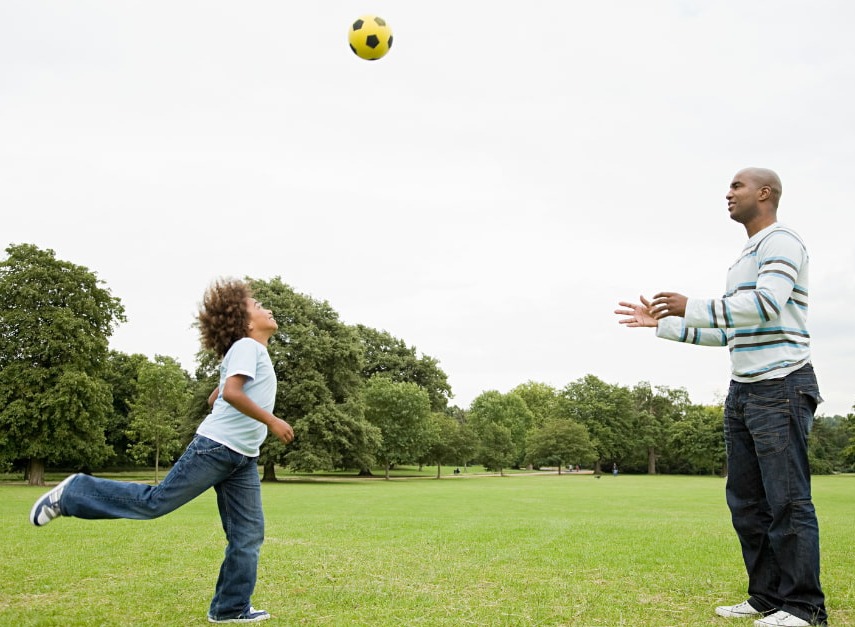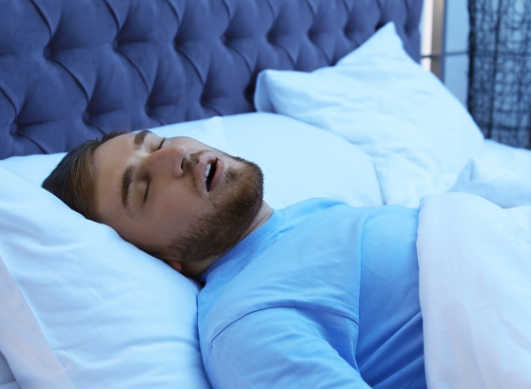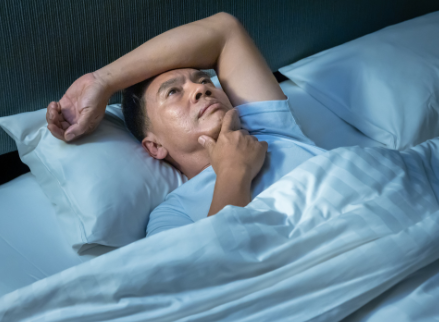Sleep Apnea: "Before CPAP, I had 33 apneas per hour."
Published Sep 11, 2024 • By Claudia Lima
Olivier, a 30-year-old father of a 3-year-old boy, works in the construction materials industry. In his interview with Carenity France, he shares his journey with sleep apnea.
Learn how this chronic condition affected his daily life and how the CPAP device made a significant difference.
Read on to find out more!

Hello Olivier, thank you for sharing your story with Carenity.
Could you start by telling us a little more about yourself?
My name is Olivier, I'm 30 years old. I've been working as a sales representative for a construction materials company for seven years. I recently got married in December—this is actually exclusive news for Carenity; even my mother doesn’t know yet! I also have the joy of being a father to a 3-year-old son.
I love spending time with my family, going on vacation, and exploring new places and cultures. When it comes to hobbies, I’m a big fan of football— I enjoy both playing and watching it.
Since late 2023, I've been using CPAP (Continuous Positive Airway Pressure) therapy for my sleep apnea.
How did you discover that you had sleep apnea? What symptoms led you to seek medical advice, and how did it impact your daily life?
I discovered my sleep apnea thanks to my loved ones. Specifically, it was my partner who urged me to see a doctor because she could no longer stand my snoring. It was having a direct impact on our daily lives; we had to start sleeping in separate rooms because she couldn't sleep anymore. On top of that, I was constantly tired and even found myself dozing off while driving.
What was the diagnostic process like, and what led to the decision to use CPAP therapy? Were you offered any alternatives?
To determine whether I needed CPAP therapy, I had to undergo a sleep study called ventilatory polygraphy. This is an at-home test where you attach sensors to yourself overnight, and it doesn’t require hospitalization. The results were analyzed the next day by a specialist, who called me to schedule an appointment three days later.
During the appointment, the specialist reviewed the test results with me and made it clear that I had severe sleep apnea. She explained the risks I would face if I didn't take action. After that consultation, she immediately recommended CPAP therapy because I was having 33 apneas per hour.
Can you describe the changes you've noticed since starting CPAP therapy for your sleep apnea? How has it improved your quality of life?
I’ve only been using the CPAP machine for a month, so I might not have a full perspective yet, but I do feel less tired. The best part is that I no longer snore, and I’m finally back to sleeping in bed instead of on the couch!
Did you encounter any difficulties or specific adjustments while getting used to the CPAP machine, and how did you overcome them?
Using the CPAP machine is quite straightforward, and I didn’t face any significant difficulties. The technician who came to set it up was very patient and spent a good hour explaining everything in detail.
For me, the only challenge is positioning the mask correctly to avoid air leaks, as that can wake me up.
Has CPAP therapy impacted your daily energy levels, concentration, and productivity?
Naturally, feeling less tired has had a positive effect on my concentration and productivity.
How have your loved ones reacted to your CPAP treatment?
My partner is very happy, and as for the rest of my family, some are curious, while others make jokes about me needing to stay close to an electrical outlet!
Has your doctor given you any other advice for managing your sleep apnea?
My doctor advised me to lose weight. While it’s possible to have sleep apnea with a normal BMI (Body Mass Index), the likelihood increases with being overweight.
Based on your own experience, can you share any advice for other Carenity members who suffer from sleep apnea?
Many people suffer from sleep apnea, but like me, they take a long time to get diagnosed. At the slightest suspicion, I recommend getting checked out. Beyond the benefit of being able to sleep next to your partner without them feeling like they’re in a nightclub, it’s crucial because sleep apnea can open the door to many other serious conditions like high blood pressure, cardiovascular diseases, diabetes, and more.
A big thank you to Olivier for this interview!
Give it a “Like” and share your thoughts and questions with the community in the comments below!
Take care of yourself!
Comments
You will also like

Fighting Schizophrenia Symptoms: a Long Journey Against Paranoia after Denial and being Admitted
Dec 12, 2018 • 6 comments

 Facebook
Facebook Twitter
Twitter

